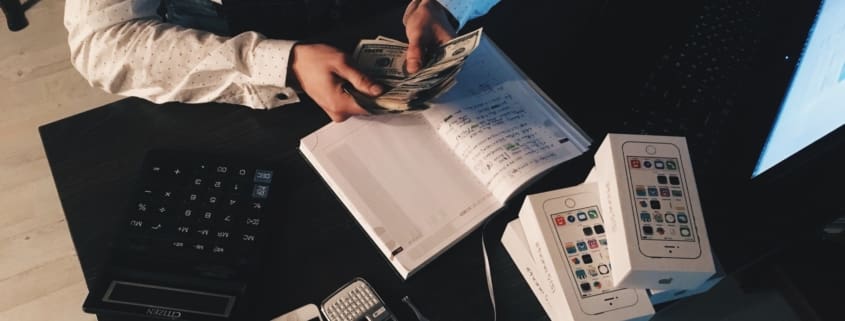In April 2020, the Paycheck Protection Program (PPP) was announced as part of the Coronavirus Aid, Relief, and Economic Security (CARES) Act. The PPP granted loans to businesses across the country to support more than 51 million jobs and over 80 percent of all small business employees.
While the average loan size was $100,000, some businesses received up to $10 million. Since its initial announcement, however, the U.S. Small Business Administration (SBA) has begun performing audits on the loans they granted following the discovery that many loans were granted under false pretenses.
Let’s review what this means for businesses that took an SBA PPP loan.
What Criminal Exposure Could You Be Subject to Because of your SBA PPP Loan?
Mnuchin, the Treasury Secretary announced that all SBA PPP loans of $2 million are guaranteed to be audited. However, smaller loans may be audited as well. This announcement resulted in business owners being concerned about potential criminal exposure.
What Will SBA Look For in The SBA PPP Loan Audits?
SBA Will Verify That The Business Needed the Loan
During an audit, SBA is looking for signs that you took funds when your businesses did not really need them. These audits are an effort to make sure only those who needed assistance received it.
SBA Will Verify That The Business Used the Funds Correctly
PPP loans are forgivable loans that could be used for:
- Payroll costs
- Rent
- Mortgage interest
- Utilities
SBA Will Look at Payroll
SBA will evaluate payroll reports in a PPP loan audit. Business owners can use these payroll reports to prove that their business spent at least 60% of the loan proceeds toward payroll costs.
There are a few exceptions to the requirement that 60% of the loan must go to payroll, including:
- Employees did not return despite receiving a good faith offer to return to their jobs with the same wages and hours
- Business operations were unable to be restored to the pre-pandemic levels as a result of restrictions on operations
- The business was unable to find qualified employees
SBA May Review Other Records
During an audit, SBA may also ask business owners to provide proof of how they used for other expenses outside of payroll. Owners should be prepared to provide such information.
Additionally, owners can assume any information discussed in the PPP loan or forgiveness application may be evaluated in an audit.
How to Avoid Criminal Charges as a Small Business Owner
Business owners can avoid criminal charges during an SBA loan audit by following these protocols:
- Make sure all certifications you submitted for the loan are accurate
- Hold onto appropriate documentation to support loan application certifications
- Be cognizant of any statements by company representatives to ensure consistency with claims to the government
- Stay compliant with any follow-on requirements for retaining the loan, obtaining loan forgiveness, or submitting subsequent certifications
- Keep internal compliance mechanisms functioning appropriately
- Take note–whistleblowers often report fraud internally before going to the government.
What Are the Potential Criminal Charges?
If business owners do not take the above points seriously then once audits do come around, they may be on the hook for loan fraud, bank fraud, and criminal tax exposure.
Loan Fraud
According to a report from the federal Pandemic Response Accountability Committee (PRAC), “flaws in the structure, administration, and terms of the PPP created many fraud risks… Many companies may have fraudulently taken advantage of the program’s quick rollout at the height of the COVID-19 crisis.”
Bank Fraud
Individuals may face the risk of being prosecuted for bank fraud under 18 U.S.C. § 1344. This federal statute makes it a criminal offense to defraud a financial institution in order to “to obtain any of the moneys, funds, credits, assets, securities, or other property owned by, or under the custody or control of, a financial institution” through false or fraudulent pretenses, representations, or promises.”
Criminal Tax Exposure
Individuals and companies accused of PPP loan fraud will likely face allegations of tax evasion. For example, this can include:
- Unlawfully claiming deductions for payroll expenses covered with PPP loan funds
- Evading income tax by not reporting income resulting from business activity supported by PPP loans
No company will be treated differently based on size or ownership. Be prepared to support your SBA PPP loan eligibility. Also, ensure that you are following all the regulations to prevent potential serious charges. These regulations have shifted significantly since the start of the SBA PPP program.
The Bottom Line
If you keep organized records of how you used the SBA PPP, and are able to prove your eligibility there is no need to be concerned.
However, if you did not take these precautions, you may want to enlist the help of an expert tax attorney to analyze your risk.
Need Assistance Analyzing Your Potential Risk?
Reach out to Milikowsky Tax Law. We are experts in criminal tax defense and government audits, and we want to help you keep your business safe.
Was your SBA PPP loan forgiveness denied?
Find out what to do next in our full guide, here.



